Music History Events: Controversies
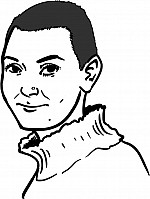 August 24, 1990 Sinéad O'Connor refuses to perform at the Garden State Arts Center in New Jersey until they agree not to play the US national anthem before the show.More
August 24, 1990 Sinéad O'Connor refuses to perform at the Garden State Arts Center in New Jersey until they agree not to play the US national anthem before the show.More
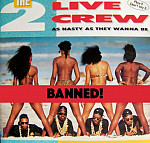 June 6, 1990 The 2 Live Crew album As Nasty As They Wanna Be becomes the first album declared legally obscene when Federal District Judge Jose Gonzalez rules that the album violates community obscenity standards in three south Florida counties: Broward, Dade, and Palm Beach.More
June 6, 1990 The 2 Live Crew album As Nasty As They Wanna Be becomes the first album declared legally obscene when Federal District Judge Jose Gonzalez rules that the album violates community obscenity standards in three south Florida counties: Broward, Dade, and Palm Beach.More
 July 21, 1989 Performing on the Club MTV tour at a stop in Bristol, Connecticut, Milli Vanilli's tracks go screwy when they try to lip-synch to the song "Girl You Know It's True." As the line "girl you know it's..." repeats over and over, the duo panic and scurry off stage. It is later revealed that they didn't sing on their album.More
July 21, 1989 Performing on the Club MTV tour at a stop in Bristol, Connecticut, Milli Vanilli's tracks go screwy when they try to lip-synch to the song "Girl You Know It's True." As the line "girl you know it's..." repeats over and over, the duo panic and scurry off stage. It is later revealed that they didn't sing on their album.More
May 30, 1989 Yusuf Islam (formerly Cat Stevens) appears on a British TV show called Hypotheticals, where he addresses the fatwa issued against the author Salman Rushdie. Islam seems to support the fatwa - when asked if he would attend a protest where a Rushdie effigy is burned, he replies, "I would have hoped that it'd be the real thing."More
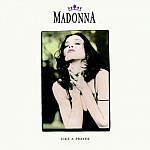 March 3, 1989 A day after the song debuts in a 2-minute Pepsi commercial, the video for Madonna's "Like A Prayer" hits MTV and causes an uproar.More
March 3, 1989 A day after the song debuts in a 2-minute Pepsi commercial, the video for Madonna's "Like A Prayer" hits MTV and causes an uproar.More
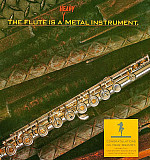 February 22, 1989 The very unheavy Jethro Tull win the first Grammy for Best Hard Rock/Metal Performance, beating out Metallica.More
February 22, 1989 The very unheavy Jethro Tull win the first Grammy for Best Hard Rock/Metal Performance, beating out Metallica.More
March 26, 1987 Nike begins airing a commercial using the Beatles song "Revolution," marking the first time an original version of a Beatles song is used in an ad.More
May 10, 1986 Paul Simon plays three songs from his upcoming Graceland album on Saturday Night Live. He's backed by South African musicians, including the vocal group Ladysmith Black Mambazo, who perform with him on "Diamonds On The Soles Of Her Shoes." With South Africa under a cultural boycott in an attempt to stop Apartheid, its music is sequestered. Simon's appearance with musicians from the country and the subsequent album introduce the sound to a global audience, but also cause problems for Simon when he faces criticism for violating the boycott.
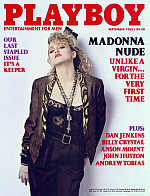 July 10, 1985 Playboy publishes nude photos of Madonna taken before she was famous.More
July 10, 1985 Playboy publishes nude photos of Madonna taken before she was famous.More
October 6, 1978 Atlantic Records head Ahmet Ertegun meets with Jesse Jackson, who has beef with The Rolling Stones' "Some Girls," specifically the line, "black girls just want to get f--ked all night."More
December 17, 1977 Elvis Costello gets banned from Saturday Night Live when he abruptly halts his performance of "Less Than Zero" and plays the searing "Radio Radio" instead.More
 December 1, 1976 The Sex Pistols appear on the Today programme on London regional TV as a last-minute substitute for Queen. After being goaded by host Bill Grundy, they swear repeatedly, including the dreaded "F" word, shocking sensitive viewers.More
December 1, 1976 The Sex Pistols appear on the Today programme on London regional TV as a last-minute substitute for Queen. After being goaded by host Bill Grundy, they swear repeatedly, including the dreaded "F" word, shocking sensitive viewers.More
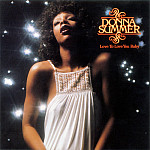 December 29, 1975 Time magazine introduces the phrase "Sex Rock" in an article taking aim at Donna Summer's "Love To Love You Baby."More
December 29, 1975 Time magazine introduces the phrase "Sex Rock" in an article taking aim at Donna Summer's "Love To Love You Baby."More
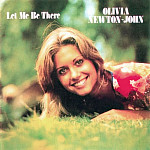 October 14, 1974 Nashville veterans worry about the sanctity of country music when Olivia Newton-John wins Female Vocalist of the Year at the Country Music Association (CMA) Awards.More
October 14, 1974 Nashville veterans worry about the sanctity of country music when Olivia Newton-John wins Female Vocalist of the Year at the Country Music Association (CMA) Awards.More
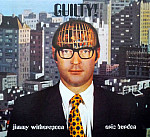 November 7, 1970 MGM Records president Mike Curb announces that his label is dumping 18 acts that "exploit and promote hard drugs through music."More
November 7, 1970 MGM Records president Mike Curb announces that his label is dumping 18 acts that "exploit and promote hard drugs through music."More
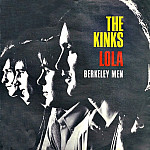 June 3, 1970 With the BBC refusing to air The Kinks' new single "Lola" because of its reference to "Coca-Cola" (brand names being a no-no for the corporation), lead singer Ray Davies flies all the way from London to New York to re-record the line as "Where you drink champagne and it tastes just like cherry-cola."More
June 3, 1970 With the BBC refusing to air The Kinks' new single "Lola" because of its reference to "Coca-Cola" (brand names being a no-no for the corporation), lead singer Ray Davies flies all the way from London to New York to re-record the line as "Where you drink champagne and it tastes just like cherry-cola."More
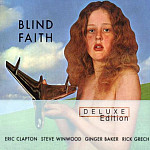 August 16, 1969 Eric Clapton's supergroup Blind Faith release their self-titled album. On the cover is a photo of a naked 11-year-old girl holding a model spacecraft.More
August 16, 1969 Eric Clapton's supergroup Blind Faith release their self-titled album. On the cover is a photo of a naked 11-year-old girl holding a model spacecraft.More
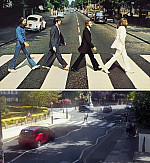 August 8, 1969 The Beatles shoot the photo for their Abbey Road album cover at the crosswalk outside Abbey Road studios, where they are recording. Fans find many nested clues in the shot of the four band members walking in stride across the street, fuelling rumors that Paul McCartney is dead.More
August 8, 1969 The Beatles shoot the photo for their Abbey Road album cover at the crosswalk outside Abbey Road studios, where they are recording. Fans find many nested clues in the shot of the four band members walking in stride across the street, fuelling rumors that Paul McCartney is dead.More
 April 10, 1969 Serge Gainsbourg and Jane Birkin's steamy duet "Je T'aime... Moi Non Plus" hits #1 in the UK, where it's banned by the BBC.More
April 10, 1969 Serge Gainsbourg and Jane Birkin's steamy duet "Je T'aime... Moi Non Plus" hits #1 in the UK, where it's banned by the BBC.More
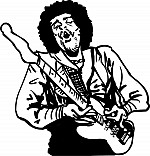 January 4, 1969 Jimi Hendrix is banned from the BBC after going off-script when he and his band, The Jimi Hendrix Experience, appear on the show Happening for Lulu, hosted by the "To Sir With Love" singer Lulu.More
January 4, 1969 Jimi Hendrix is banned from the BBC after going off-script when he and his band, The Jimi Hendrix Experience, appear on the show Happening for Lulu, hosted by the "To Sir With Love" singer Lulu.More
January 2, 1969 Police confiscate a shipment of John Lennon and Yoko Ono's album Two Virgins at Newark airport, deeming the cover, which shows the couple naked, to be pornographic.
November 12, 1968 Jimi Hendrix's third album, Electric Ladyland, shows the famous guitarist on the cover along with a collection of naked women. You can only get it in England - the American version is released with an alternate cover.
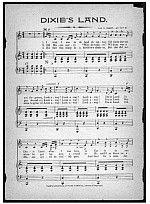 September 25, 1968 No more whistling "Dixie" for University of Miami students as the school becomes the first university to ban the controversial Confederate anthem from being played at public events.More
September 25, 1968 No more whistling "Dixie" for University of Miami students as the school becomes the first university to ban the controversial Confederate anthem from being played at public events.More
September 4, 1968 "Street Fighting Man" by The Rolling Stones is banned in Chicago and some other cities as local officials fear it will incite riots.
April 8, 1968 The TV special Petula airs on NBC. At one point in the show, host Petula Clark grabs hold of Harry Belafonte's arm while they are singing a duet. This marks the first time a white woman and black man have physical contact on TV in such context.More
September 17, 1967 Appearing on The Ed Sullivan Show, The Doors are asked to change the line "Girl, we couldn't get much higher" in their hit "Light My Fire" to "Girl, we couldn't get much better." Lead singer Jim Morrison agrees, then sings the offending line anyway, angering the host and earning a lifetime ban from the show.
May 20, 1967 Because of the line, "I'd love to turn you on," the BBC bans The Beatles song "A Day In The Life," claiming it may promote drug use.
July 29, 1966 A US magazine targeted to teenagers called Datebook causes an uproar when they reprint some of John Lennon's interview from four months earlier in the London Evening Standard where Lennon said, "We're more popular than Jesus now." The American media jump on the quote and turns it into a major story.
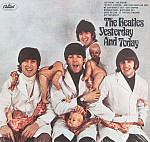 June 14, 1966 Deeming its "butcher cover" in poor taste, Capitol Records recalls the new Beatles album, Yesterday and Today, which is scheduled for release the next day and has already been sent to stores.More
June 14, 1966 Deeming its "butcher cover" in poor taste, Capitol Records recalls the new Beatles album, Yesterday and Today, which is scheduled for release the next day and has already been sent to stores.More
March 4, 1966 John Lennon is quoted in the London Evening Standard saying, "Christianity will go. It will vanish and shrink. I needn't argue about that; I'm right and I will be proved right. We're more popular than Jesus now." The remark goes mostly unnoticed, but causes a big stink when it is reprinted in a US publication four months later.
Back to Categories©2024 Songfacts®, LLC
